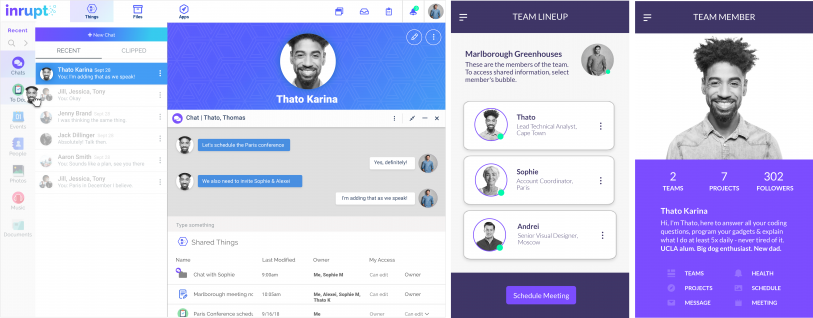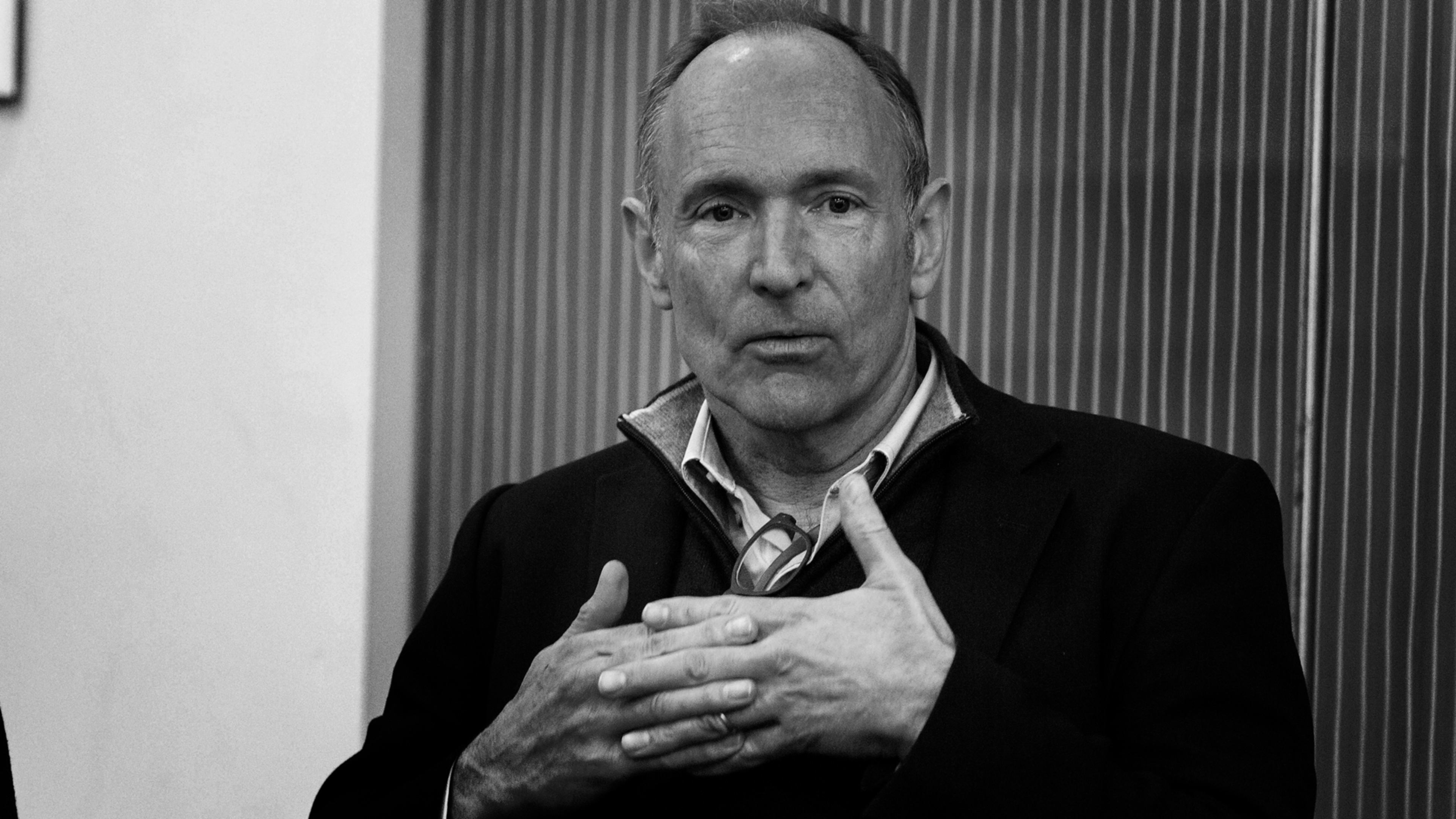Last week, Tim Berners-Lee, inventor of the World Wide Web, asked me to come and see a project he has been working on almost as long as the web itself. It’s a crisp autumn day in Boston, where Berners-Lee works out of an office above a boxing gym. After politely offering me a cup of coffee, he leads us into a sparse conference room. At one end of a long table is a battered laptop covered with stickers. Here, on this computer, he is working on a plan to radically alter how all of us live and work on the web.
“The intent is world domination,” Berners-Lee says with a wry smile. The British-born scientist is known for his dry sense of humor. But in this case, he is not joking.
This week, Berners-Lee will launch Inrupt, a startup that he has been building, in stealth mode, for the past nine months. Backed by Glasswing Ventures, its mission is to turbocharge a broader movement afoot, among developers around the world, to decentralize the web and take back power from the forces that have profited from centralizing it. In other words, it’s game on for Facebook, Google, Amazon. For years now, Berners-Lee and other internet activists have been dreaming of a digital utopia where individuals control their own data and the internet remains free and open. But for Berners-Lee, the time for dreaming is over.
“We have to do it now,” he says, displaying an intensity and urgency that is uncharacteristic for this soft-spoken academic. “It’s a historical moment.” Ever since revelations emerged that Facebook had allowed people’s data to be misused by political operatives, Berners-Lee has felt an imperative to get this digital idyll into the real world. In a post published this weekend, Berners-Lee explains that he is taking a sabbatical from MIT to work full time on Inrupt. The company will be the first major commercial venture built off of Solid, a decentralized web platform he and others at MIT have spent years building.
A Netscape for today’s internet
If all goes as planned, Inrupt will be to Solid what Netscape once was for many first-time users of the web: an easy way in. And like with Netscape, Berners-Lee hopes Inrupt will be just the first of many companies to emerge from Solid.
“I have been imagining this for a very long time,” says Berners-Lee. He opens up his laptop and starts tapping at his keyboard. Watching the inventor of the web work at his computer feels like what it might have been like to watch Beethoven compose a symphony: It’s riveting but hard to fully grasp. “We are in the Solid world now,” he says, his eyes lit up with excitement. He pushes the laptop toward me so I too can see.
On his screen, there is a simple-looking web page with tabs across the top: Tim’s to-do list, his calendar, chats, address book. He built this app–one of the first on Solid–for his personal use. It is simple, spare. In fact, it’s so plain that, at first glance, it’s hard to see its significance. But to Berners-Lee, this is where the revolution begins. The app, using Solid’s decentralized technology, allows Berners-Lee to access all of his data seamlessly–his calendar, his music library, videos, chat, research. It’s like a mashup of Google Drive, Microsoft Outlook, Slack, Spotify, and WhatsApp.
The difference here is that, on Solid, all the information is under his control. Every bit of data he creates or adds on Solid exists within a Solid pod–which is an acronym for personal online data store. These pods are what give Solid users control over their applications and information on the web. Anyone using the platform will get a Solid identity and Solid pod. This is how people, Berners-Lee says, will take back the power of the web from corporations.

A new revolution for developers?
Berners-Lee believes Solid will resonate with the global community of developers, hackers, and internet activists who bristle over corporate and government control of the web. “Developers have always had a certain amount of revolutionary spirit,” he observes. Circumventing government spies or corporate overlords may be the initial lure of Solid, but the bigger draw will be something even more appealing to hackers: freedom. In the centralized web, data is kept in silos–controlled by the companies that build them, like Facebook and Google. In the decentralized web, there are no silos.
Starting this week, developers around the world will be able to start building their own decentralized apps with tools through the Inrupt site. Berners-Lee will spend this fall crisscrossing the globe, giving tutorials and presentations to developers about Solid and Inrupt. (There will be a Solid tutorial at our Fast Company Innovation Festival on October 23.)
“What’s great about having a startup versus a research group is things get done,” he says. These days, instead of heading into his lab at MIT, Berners-Lee comes to the Inrupt offices, which are currently based out of Janeiro Digital, a company he has contracted to help work on Inrupt. For now, the company consists of Berners-Lee; his partner John Bruce, who built Resilient, a security platform bought by IBM; a handful of on-staff developers contracted to work on the project; and a community of volunteer coders.
Later this fall, Berners-Lee plans to start looking for more venture funding and grow his team. The aim, for now, is not to make billions of dollars. The man who gave the web away for free has never been motivated by money. Still, his plans could impact billion-dollar business models that profit off of control over data. It’s not likely that the big powers of the web will give up control without a fight.
When asked about this, Berners-Lee says flatly: “We are not talking to Facebook and Google about whether or not to introduce a complete change where all their business models are completely upended overnight. We are not asking their permission.”
Game on.
Recognize your brand’s excellence by applying to this year’s Brands That Matter Awards before the early-rate deadline, May 3.
